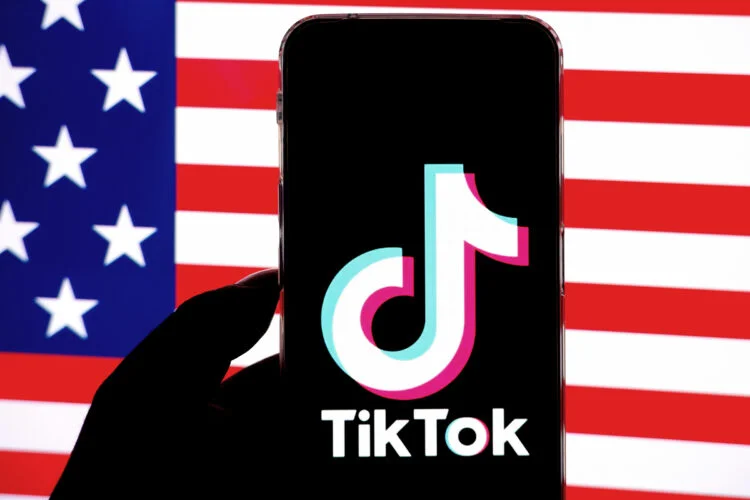The Possible Banning of TikTok
The U.S. Reveals Concerns About the Effect of TikTok on Our Generation
April 12, 2023
For many teenagers around the country, the majority of screen time is spent on the short-form video app TikTok. With more than 150 million users, TikTok is the most utilized app in America in 2023. However, TikTok is currently under close surveillance as concerns grow about its handling of user data in the United States.
TikTok is owned by a Chinese company called ByteDance, and U.S. lawmakers and security officials are worried that ByteDance is putting sensitive user data, like location information and browsing history, into the hands of the Chinese government.
The Biden Administration is demanding that ByteDance either sell or ban the TikTok app. The Chinese government has laws which allow it to secretly gather data from Chinese companies and citizens for their own uses. The U.S. government has pointed out this law and claims that TikTok is feeding the Chinese Communist Party information through this system.
Though ByteDance denies these allegations, the U.S. government’s doubts in the company continue to grow. In fact, the government’s concerns about the app are bipartisan. Both Democrats and Republicans share the desire to ban TikTok, making it a rare topic of agreement.
Last month, TikTok’s ties to China and their potential spreading of sensitive information called for a Congressional hearing.
On Thursday, March 23, the House of Energy and Commerce Committee interrogated the CEO of TikTok Shou Chew with questions concerning the company’s handling of user data and connection with the Chinese Communist Party. However, Chew’s testimony did little to alleviate lawmakers’ worries and only added more momentum to their calls for banning the app.
In the hearing, Shou Chew defended TikTok by spotlighting Project Texas, a 1.5 billion dollar plan focused on security efforts. Project Texas has over 1,500 employees and is working with the American corporation Oracle to store the app’s user data within the U.S. However, Project Texas did not impress the U.S. government, as TikTok has made no new efforts to safeguard privacy.
Many other countries are also taking measures against the app. On April 4, Australia banned TikTok on all federal government-owned devices due to security concerns. Similarly, on March 16, the U.K Secretary of State announced a ban of the app on any government official devices. Worried about the privacy of TikTok for years, certain countries, such as India, have banned the app altogether.
With all of these facts in mind, how would banning or keeping TikTok affect the U.S. teenage population, which constitutes a large percentage of the app’s users?
Critics claim that the app is harmful to its teenage users, as it negatively affects their mental health and self esteem. More seriously, the app can even glorify self-harm, eating disorders, and unhealthy habits.
During the congressional hearing, Florida representative Gus Bilirakis stated to Shou Chew that Tik Tok’s “technology was literally leading to death.”
TikTok is also prone to negative comments, cyberbullying, and online harassment. The app can be addictive, especially since it requires a shorter attention span than watching movies or TV shows. This concerns many parents as the app shifts their childrens’ focus from schoolwork and important activities. According to the Pew Research Center, the average screen time on TikTok per day was 95 minutes in 2022.
Despite all of these downsides concerning security, bullying, addiction, and mental health, TikTok remains the most popular app among teenagers around the globe.
Although the cons of the app most certainly outweigh the pros, TikTok can be a resourceful and positive tool if used correctly. The app can encourage creativity, build community, and expose teens to new activities and ideas outside the scope of their own experiences. A ban may limit the imagination and comradery which the app facilitates.
Given TikTok’s many risks and rewards, how will you use and value it moving forward?





Calum Regan • Apr 19, 2023 at 2:40 pm
Great article, Luce!